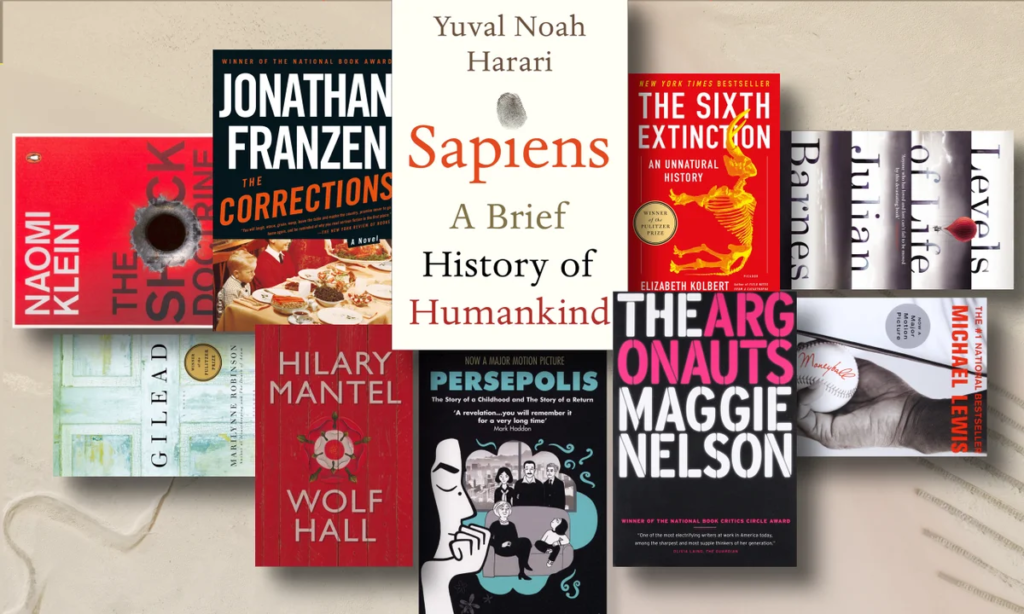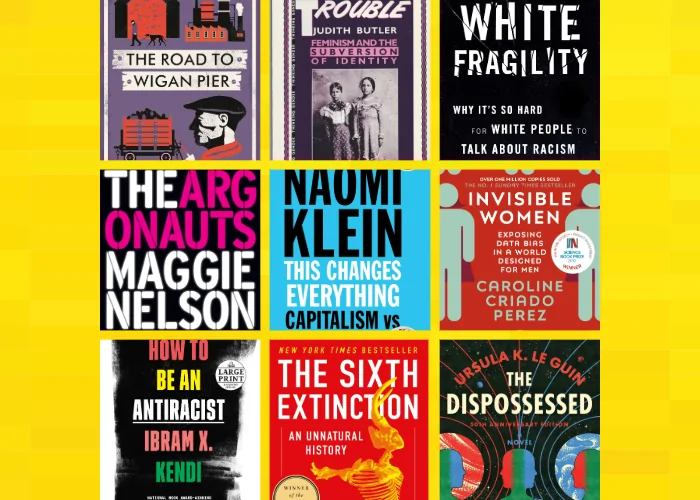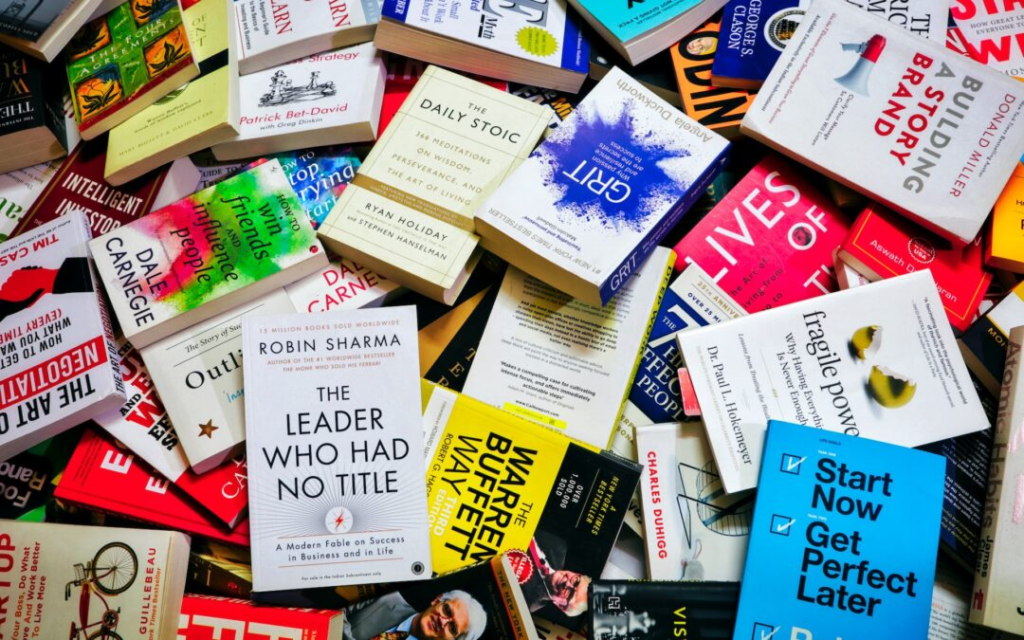In an era of rapid technological advancements, political upheavals, and cultural shifts, books remain a powerful tool for understanding and redefining modern society. Some works go beyond entertainment—they challenge our perspectives, expose hidden truths, and inspire movements. Whether fiction or nonfiction, these books push boundaries and force readers to question the world around them.
Here’s a curated list of the best books that redefine modern society, offering deep insights into human behavior, systemic injustices, and the future of humanity.

1. “Sapiens: A Brief History of Humankind” by Yuval Noah Harari
Why It Redefines Society:
Yuval Noah Harari’s Sapiens takes readers on a journey through the evolution of Homo sapiens, exploring how myths, money, and empires shaped civilization. The book challenges traditional narratives about human progress, arguing that shared beliefs—religion, capitalism, and nationalism—are the glue holding societies together.
Key Takeaways:
- The Agricultural Revolution was both a blessing and a trap.
- Money is the most universal and efficient system of mutual trust.
- The future of humanity may lie in bioengineering and artificial intelligence.
This book forces readers to rethink history, economics, and the very fabric of society.
2. “1984” by George Orwell
Why It Redefines Society:
Published in 1949, *1984* remains eerily relevant in today’s world of mass surveillance, propaganda, and authoritarianism. Orwell’s dystopian vision of a totalitarian regime where Big Brother controls truth itself serves as a warning against government overreach and media manipulation.
Key Takeaways:
- Language can be weaponized to control thought (Newspeak).
- Surveillance erodes personal freedom.
- Truth is malleable in the hands of those in power.
With rising concerns about privacy and misinformation, *1984* is more important than ever.
3. “The Handmaid’s Tale” by Margaret Atwood
Why It Redefines Society:
Margaret Atwood’s chilling dystopian novel depicts a future where women are stripped of their rights and reduced to reproductive vessels. The book explores themes of gender oppression, religious extremism, and political control—issues that resonate deeply in today’s debates over bodily autonomy and women’s rights.
Key Takeaways:
- Extremism can dismantle democracy gradually.
- Control over women’s bodies is a tool of political power.
- Resistance is possible even under oppressive regimes.
The Handmaid’s Tale serves as both a warning and a call to action.
4. “Between the World and Me” by Ta-Nehisi Coates
Why It Redefines Society:
Written as a letter to his son, Ta-Nehisi Coates’ Between the World and Me is a raw exploration of race, violence, and systemic injustice in America. The book challenges the myth of the American Dream, exposing how Black bodies have historically been exploited and policed.
Key Takeaways:
- Racism is deeply embedded in American institutions.
- The concept of “race” was constructed to justify oppression.
- True freedom requires confronting uncomfortable truths.
This book is essential for understanding racial dynamics in modern society.
5. “Brave New World” by Aldous Huxley
Why It Redefines Society:
While Orwell warned about oppression through fear, Huxley’s Brave New World warns of oppression through pleasure. In this dystopia, people are controlled by consumerism, instant gratification, and a drug-induced sense of happiness. The book raises critical questions about freedom, technology, and human conditioning.
Key Takeaways:
- People can be controlled by comfort rather than force.
- Over-reliance on technology can erode human connection.
- True happiness requires struggle and meaning.
Huxley’s vision feels increasingly relevant in our age of social media addiction and instant dopamine hits.

6. “The Tipping Point” by Malcolm Gladwell
Why It Redefines Society:
Malcolm Gladwell explores how small actions can lead to massive societal changes. From fashion trends to crime rates, The Tipping Point examines the factors that make ideas go viral. The book is crucial for understanding modern marketing, social movements, and cultural shifts.
Key Takeaways:
- Small changes can create large-scale effects.
- Social epidemics depend on key influencers (Connectors, Mavens, Salesmen).
- Context shapes behavior more than we realize.
This book is a must-read for marketers, activists, and anyone interested in societal change.
7. “The Power of Now” by Eckhart Tolle
Why It Redefines Society:
In a world obsessed with productivity and future goals, The Power of Now teaches the importance of living in the present moment. Tolle argues that most human suffering comes from over-identifying with thoughts rather than experiencing life as it is.
Key Takeaways:
- Anxiety stems from dwelling on the past or future.
- True peace comes from mindfulness.
- The ego creates unnecessary conflict.
This book has influenced modern spirituality and mental health discussions.
8. “Quiet: The Power of Introverts in a World That Can’t Stop Talking” by Susan Cain
Why It Redefines Society:
Society often celebrates extroversion, but Susan Cain’s Quiet argues that introverts bring unique strengths to leadership, creativity, and problem-solving. The book challenges workplace norms and educational systems that favor loud, outgoing personalities.
Key Takeaways:
- Introverts thrive in deep, focused environments.
- Collaboration should balance group and solo work.
- Silence and reflection drive innovation.
This book has reshaped corporate cultures and personal development trends.

9. “The Subtle Art of Not Giving a Fck” by Mark Manson*
Why It Redefines Society:
In contrast to traditional self-help books, Mark Manson’s The Subtle Art argues that happiness comes from embracing struggles rather than avoiding them. The book’s blunt, no-nonsense approach has resonated with millions tired of toxic positivity.
Key Takeaways:
- Not everything deserves your attention.
- Suffering is inevitable—what matters is what you suffer for.
- Personal values shape fulfillment.
This book has redefined modern self-help with its realistic, counterintuitive advice.
10. “Factfulness” by Hans Rosling
Why It Redefines Society:
Hans Rosling challenges common misconceptions about global poverty, health, and education. Using data, Factfulness shows that the world is improving in ways most people don’t realize, combating doom-and-gloom narratives.
Key Takeaways:
- The world is better than we think.
- Misinformation skews our worldview.
- Critical thinking requires questioning instincts.
This book is a refreshing antidote to media sensationalism.
Final Thoughts
Books have the power to shift mindsets, expose injustices, and inspire change. The titles listed above don’t just reflect modern society—they challenge it, offering new lenses through which to view politics, technology, and human behavior.
Whether you’re looking to understand systemic racism, the dangers of authoritarianism, or the psychology of happiness, these books provide invaluable insights. The best part? They don’t just inform—they transform.
Which of these books have you read? Which one will you pick up next? The choice could change how you see the world.
Must Read :- Top 7 Unsolved Mysteries That Still Shock America



